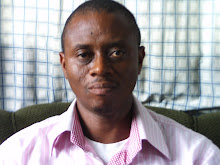In the poem, the poet uses the word visa to depict what a visitor to Lagos needs to have a comfortable stay in the city of Lagos or the state as a whole. To get the picture that poet wants us to see, we must have at the back of our mind that a visa is an official endorsement in a passport authorizing the bearer to enter or leave, and travel in or through, a specific country or region. As we know, when a visitor to a country does not possess the required documents, the chances are they may be turned back at the point of entry into the country and when they scaled through immigration into the country they will not be at rest as they have to be on the move constantly to avoid been detected and deported or to remain in one place (Encarta Dictionary 2009).
Microsoft Encarta 2009 defines a visa as a “formal endorsement placed by government authorities on a passport, indicating that the passport has been examined and found valid by the nation to be visited and that the bearer may legally go to his or her destination”.
The normal parlance to anyone who intends to visit Lagos is to be on the look out as the city is one that anything can happen. Amongst the residents of Lagos, there is the saying that if you come to the city and not wise, you cannot be wise in any other city. This is what the poet portrays in the poem, Another Lagos Visa.
To start with, the poet starts with the possibilities of how one can become entangled or associated with the city. This could be through different means either through marriage, as a slave “eru” this is very common among the different people that have one business dealing or the other in the city as they bring people with them who they import into the city to conduct their businesses for them. These people in turn serve bonds and are set up after the expiration of the bonds. In addition to this, there are people who are actually brought to the city as slave and are nothing but that even in the present day world. Not unless these people talk about the conditions under which they come to Lagos no one knows. They are also addressed by the poet. These are those he says … “were dragged as eru to Lagos” at the same time, there are those who are not really Lagosians but have been born into the city of Lagos. Having talked about how they could be brought into the city: a visitor, married into it, bought into the city or born into the city, the poet goes on to talk about all they need is that they should be aware that Lagos is a delicate city that requires tack and skill to live in. “Eko akete ilu ogbon”
He goes on to say that even if you live in another city in the world that is considered more developed or advanced, to survive in Lagos you must be retrained for the city of Lagos.
If you’re not smart in Lagos
Then when you get to New York
You’d be the retarded being …
which re-emphasises the saying that if you are not smart in Lagos, you cannot be smart in another city as you’ll need another type of training before you can live in Lagos.
He goes on to reiterate the normal saying that warns all those who come to the city to be with their sixth sense as they are warned not to spend all they make in the city of Lagos under the guise that the money one makes in Lagos remains in Lagos. As he says:
… didn’t your mama not warn you not to allow owo eko to live in eko.
This poem supports the saying that the true inhabitants and the Yoruba tribe do not refer to the city of Lagos by any other name but Lagos.

No comments:
Post a Comment